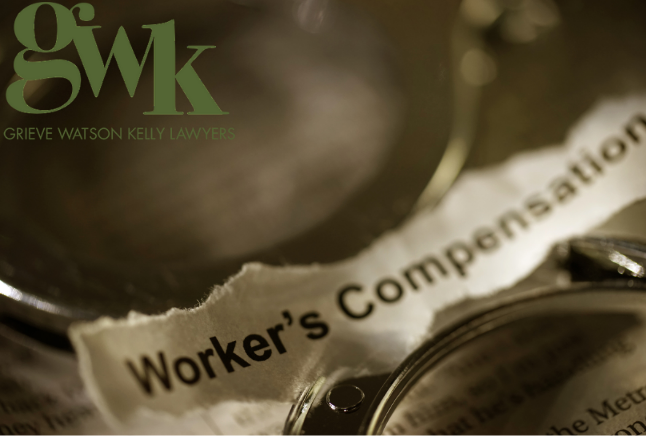Comcare Lawyers and the Administrative Appeal Tribunal
Finding a Comcare lawyer to help you with your Comcare claim can be difficult. It is difficult to find law firms that practice Commonwealth Workers Compensation or employ Comcare lawyers. At Grieve Watson Kelly Lawyers all of our lawyers are Comcare lawyers.
Role of Comcare Lawyers.
Our Comcare lawyers assist claimants who need to make a claim for commonwealth workers compensation due to a workplace injury or illness. We provide legal advice, guide you through the process, and help you understand your potential entitlements.
What is a Comcare claim?
Comcare is the workers’ compensation scheme for employees of the Commonwealth of Australia (such as – AFP Officers, Department of Agriculture, etc). It also covers some national companies that hold a Comcare license under the Comcare scheme (such as – Linfox , Fedex Express, Wilson Security) See our Comcare page to see if your employer is covered by the Comcare scheme.
If you’re employed by the Commonwealth or one of the Comcare covered employers and you suffer an injury or illness at work, you may be eligible for compensation through Comcare.
Types of Benefits Under Comcare:
-
- If you’ve been injured at work, you may be eligible for several types of benefits, including:
- Medical benefits: Covering necessary medical expenses related to your injury or illness.
- Rehabilitation benefits: Assisting with rehabilitation services to help you recover and return to work.
- Income support: Providing financial assistance if you’re unable to work due to the injury.
- Lump sum payments: For permanent injuries.
- See our Comcare page for more detailed information.
- If you’ve been injured at work, you may be eligible for several types of benefits, including:
Making a Comcare Claim.
-
-
- To successfully claim compensation, you must demonstrate that your employment either caused or significantly contributed to your injury, ailment or disease.
- Seeking legal advice early is crucial, as strict time limits apply.
-
What is the Administrative Appeal Tribunal (AAT)
The AAT is a Tribunal that reviews various administrative decisions made by Australian Government departments, and/or the Comcare licensees.
– Appealing to the AAT:
If you’re an injured worker and you disagree with a decision made by the Insurer or Comcare (such as reducing or terminating your benefits or rejecting a claim), you can apply to the AAT to have the decision reviewed.
The time limit to apply for an AAT review is 60 days after receiving notice of the reviewable decision.
– AAT Process:
The AAT examines the evidence related to your claim and determines whether the correct decision was made.
Our Comcare lawyers can help you through the process and obtain further evidence from experts or obtain necessary medical records to assist with the proceedings.
-
- The AAT can:
- Affirm the Comcare’s decision (no change).
- Vary the decision (change Comcare’s decision in some way).
- Set aside the decision (change Comcare’s decision partially or fully).
- Send the decision back to the Comcare’s for a new decision.
- If the AAT makes a decision after a hearing, either you or Comcare can appeal to the Federal Court on a question of law within 28 days.
- The AAT can:
Remember that seeking legal advice from a Comcare lawyer and understanding your rights during the AAT process is important to any successful claim.
What do Comcare Lawyers do in the AAT?
- Legal Representation:
- GWK Comcare lawyers can represent you throughout the AAT proceedings. Having legal representation ensures that your interests are advanced as best as possible based on the evidence.
- We understand the complexity of the Comcare system and can guide you through the entire process.
- Depending on the matter we can act on a “no win, no fee” basis (conditional costs agreement)
- Understanding the Workers’ Compensation Law:
- Comcare lawyers specialise in workers’ compensation law and have in-depth knowledge of the relevant legislation, regulations, and case law.
- We can provide you with accurate legal advice tailored to your specific situation.
- Preparing Your Case:
- Before the AAT hearing, our Comcare lawyers will work with you to prepare the case.
- They will gather evidence, review medical records, interview witnesses, and assess the merits of your claim.
- Drafting Submissions and pleadings:
- Our Comcare lawyers and the barristers we brief are skilled at drafting legal submissions and pleadings. These documents outline the key points of your case and address any legal issues.
- Representation at the AAT Hearing:
- During the AAT hearing, your lawyer and barrister will advocate on your behalf.
- Your lawyers will present evidence, cross-examine witnesses, and make legal arguments to support your claim.
- We have experience in similar cases that allows us to navigate the hearing.
- Negotiation and Settlement:
- Sometimes in commonwealth workers compensation matters through negotiation a settlement can be achieved. Your Comcare lawyer can engage in negotiations with Comcare or the insurer to reach an outcome without the need for a full hearing.
- Appeals and Review:
- If the AAT decision is not in your favour, our lawyers can advise you on the possibility of further appeals. Our lawyers can guide you through the process of seeking a review in the Federal Court if necessary.
Grieve Watson Kelly Lawyers
The Comcare lawyers at Grieve Watson Kelly Lawyers help Comcare claimants in multiple states. We regularly act for injured workers in New South Wales, ACT, Victoria, Queensland and South Australia. We are able to arrange in person conferences or video conferences to take instructions.
Seeking Legal Guidance About Comcare claims
Navigating a workers compensation claim in the Comcare scheme can be difficult. If you’ve been seriously injured during the course of your work, consider reaching out to Grieve Watson Kelly Lawyers. Our Comcare lawyers understand the complexities of personal injury compensation and workers compensation claims.
Disclaimer: This post provides general information based on Cth sources and laws and does not constitute legal advice. We recommend you consult with a lawyer to obtain legal advice for your individual circumstances.


